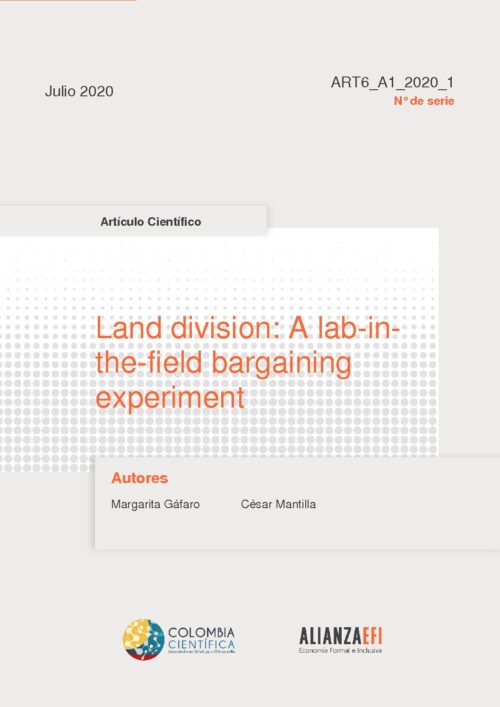We design a framed bargaining experiment to explore how farmers allocate inherited land. In the experiment, two players with heterogeneous productivity inherit a land plot yielding a risky production, and some tokens to bargain over a land allocation. We conduct this experiment in Colombia with 256 participants from rural municipalities and 120 undergraduate students. Although the efficient, the non cooperative, and the cooperative solutions of this game predict that the most productive player accrues most of the land, we find that 75% of the bargaining interactions yield egalitarian but inefficient land divisions. We implemented a treatment variation in which a costly disagreement is the only outcome leading to land equality. The single disagreement observed in this treatment weakens the support for preferences for egalitarian outcomes as the driver of inefficient allocations. We discuss alternative explanations based on the salience of equality heuristics, over-valuation of land, and sequential cooperative bargaining.
Autores:
- César Mantilla
- Margarita Gáfaro
Palabras clave:
- Cooperative bargaining
- Efficiency
- Land division
- Non-cooperative bargaining
Categorías:
- Proyecto 6
- Publicación
